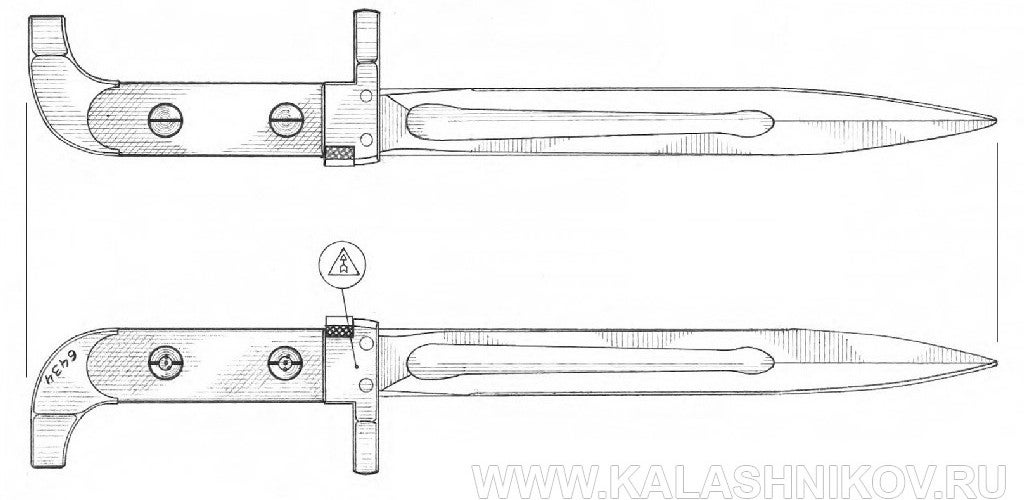6H2 Bayonet
| Factions | Weapon | Icon | Takes up Secondary | Damage | |
|---|---|---|---|---|---|
| Slash | Stab | ||||
 VC |
 6H2 Bayonet |
 |
False | 35 | 55 (25 bleed) |
| Full name | Weapon Type | Place of Origin | Date | Manufacturer | Blade Length | Total Length | Weapon Script Name |
|---|---|---|---|---|---|---|---|
| 6H2 Bayonet | Melee | Soviet Union | 1955 | Izhevsk Arsenal | 7.9 in (200 mm) | 15.2 in (387 mm) | weapon_ak47_bayonet |
The AK-47 assault rifle was introduced during a period in history when the bayonet's future was in debate. In the decade following the outbreak of the Second World War, most of the major powers produced an infantry rifle without the ability to mount a bayonet. Without a single exception, every one was redesigned to accept a bayonet or replaced with a rifle that did within a few years of its introduction. The AK47 was Russia's entry in this debate, being designed without the intent that it mount a bayonet. Having a change of mind, in 1955, the Russians opted for a bayonet. The AK47 bayonet hilt borrows heavily from the Swedish M1914 bayonet, another example where the bayonet was added as an afterthought. Both the AK47 bayonet and scabbard were patterned after Russia's first knife bayonet, the M1940 bayonet used with the 7.62 mm. Tokarev SVT–40 self–loading rifle. Although adequate, the dual muzzle-ring arrangement made the AK47 bayonet awkward, at best, for any other use.
HISTORY
Produced 1955–60 at the Izhevsk Arsenal, Izhevsk, Russia. The reason for the unusual grip and second partial muzzle ring was that the bayonet was an afterthought, the AK47 not being initially designed to accept a bayonet.
The steel scabbard is a clone of the later M1940 SVT scabbard. Russian scabbards typically have a drain hole on the front side of the scabbard. It has an integral web belt hanger with a leather hilt strap. The olive green web belt hanger measures 4.125 in. (105 mm.) long by 0.50 in. (19 mm.) wide.
The AK47 bayonet was produced by: Bulgaria, China, East Germany, Indonesia, North Korea, Poland, and Russia
SOURCE






